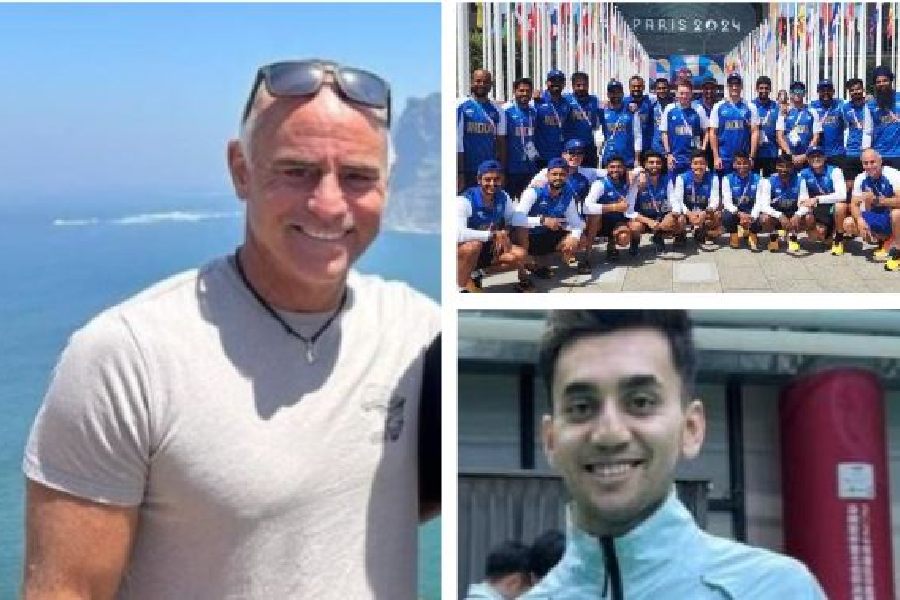Distractions are like “weeds contaminating an athlete’s mind”. Young players and athletes need to keep that in mind while participating in a competition as big as the Olympics. Those are the words of advice from mental conditioning coach Paddy Upton ahead of the Paris Games.
Upton, a part of the support staff of Team India that had triumphed in the 2011 Cricket World Cup and also a former head coach of IPL franchise Rajasthan Royals, will be working with the India men’s hockey team in Paris as their mental coach and will also be supporting young Indian shuttler Lakshya Sen.
If cricketers can benefit from Upton’s suggestions and advice, one can certainly be optimistic about the hockey team and Lakshya putting on an impressive showing at the Games. But before that, the 55-year-old South African reminds the players of the need to put distractions away.
“One of the most important aspects in preparing athletes for peak performances is not so much by helping them to focus correctly, but rather helping them to avoid distractions. Once an athlete has achieved some success, it’s because he/she knows what to focus on.
“Distractions are like weeds. They contaminate athletes’ minds and distract them from being correctly focused. Depending on the athlete’s personality, his/her mental weeds will grow in different places and be caused by different things. A mental coach needs to help athletes identify those weeds/distractions,” Upton told The Telegraph from Paris late on Wednesday evening.
Two of the biggest distractions for athletes in big-ticket events, according to Upton, are pressure and fear. “Fear or pressure is never about something that’s happening at the moment. It’s always about worrying about something that might happen in the future, which is a very common error that almost every single athlete makes. The best in the world just make it less often.
“A general thumb rule is that optimists will tend to suffer from pressure, wanting to do well while pessimists will tend to suffer from fear, wanting to avoid things going wrong,” Upton said.
One assumes Upton will be conveying the above messages or speaking on the same lines to India’s hockey team captain Harmanpreet Singh and his teammates as well as to the 22-year-old Lakshya, who’s set for his Olympics debut.
Even if there’s no dearth of talent in the Indian contingent in Paris, performance anxiety is one aspect the players and athletes need to address. In the past, errors at crunch moments have cost the Indians dearly.
“The best way to manage past failures is by thinking about the failure only as long as it’s required to extract the lesson (from it). They then leave the past in the past, bring the lesson into the future and apply it. This way they gain experience but do not suffer the emotional consequence of failure,” Upton explained.











